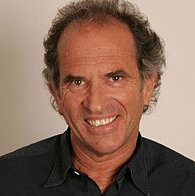Gallipoli producer John Edwards describes Screen Australia funding cuts as ‘realpolitik’
 The producer behind major Australian dramas including Puberty Blues, Offspring, Howzat: Kerry Packer’s War, Paper Giants and Nine’s eight part upcoming drama Gallipoli has described recent drastic cuts to industry funding body Screen Australia as “realpolitik”.
The producer behind major Australian dramas including Puberty Blues, Offspring, Howzat: Kerry Packer’s War, Paper Giants and Nine’s eight part upcoming drama Gallipoli has described recent drastic cuts to industry funding body Screen Australia as “realpolitik”.
In an interview with Mumbrella, John Edwards said the recent cuts which will see $5m lost from budgets this year with measures including lowering its maximum investment in films to $2m, cutting 12 full time staff members and shedding $500,000 from marketing were being handled as best they could.
“It’s realpolitik, but given what they are facing it seems to me they have been pretty sharp,” said Edwards. “Wise, pragmatic and astute. They seem to be approaching it well, they seem to be canvasing views, they seem to be getting a pretty good balance.”
While acknowledging that more than half his funding came from non-Screen Australia sources he said: “From what I see the way they are approaching the situation seems to be a really balanced and considered response to their circumstances.”


Bravo, bravo, Screen Australia and please give us more money!
Two points. When you have a slice of the pie as big as Mr Edwards has it’s easier to be magnanimous and a supporter of the status quo. More importantly, with what little government finding that remains, does our film and television industry need an eight hour rehash of the events of Gallipoli? 100th anniversary jingoism in pre-production?
Yes, I think that given the situation, the decisions made are seem realistic, pragmatic and focused on Production.
Now lets get behind changes and a diverse mindsets in SA. International consumption and production is the only future.
While advocating for developing to the reality of “consumption”; making what Audiences want and when gives us VOD in one form or another.
Therefore reviewing the “Tradition Pre-sale” model is needed urgently?